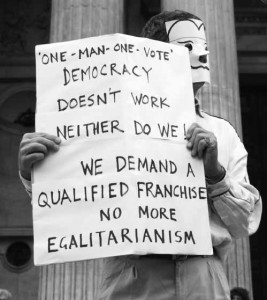 According to the National Equality Panel’s report in 2010, London is the most unequal region in the UK and one of the most unequal cities in the world. On average, the top 10 per cent richest Londoner’s are 273 times wealthier than the bottom 10 per cent. The top 20 per cent of earners take home 60 per cent of the income, while the bottom poorest 10 per cent of households are just getting by – at retirement age they have a total wealth of under £3,500. Economic inequality has risen sharply since the 1970s and it continues to rise. We at the London Equality Group believe this level of inequality is not only morally unacceptable, but also damaging – for individuals and for society as a whole.
According to the National Equality Panel’s report in 2010, London is the most unequal region in the UK and one of the most unequal cities in the world. On average, the top 10 per cent richest Londoner’s are 273 times wealthier than the bottom 10 per cent. The top 20 per cent of earners take home 60 per cent of the income, while the bottom poorest 10 per cent of households are just getting by – at retirement age they have a total wealth of under £3,500. Economic inequality has risen sharply since the 1970s and it continues to rise. We at the London Equality Group believe this level of inequality is not only morally unacceptable, but also damaging – for individuals and for society as a whole.
The Spirit Level, a book by Richard Wilkinson and Kate Pickett, broke new ground when it was published in 2009. Based on thirty years’ research and hundreds of academic papers, it demonstrated that more unequal societies are bad for almost everyone – the well-off as well as the poor. Reviewing academic studies and statistics, it found that almost every social and environmental problem – ill-health, low levels of trust, violence, mental illness, drug abuse – is more likely to occur in a less equal society. The evidence has been subjected to close academic scrutiny and vicious right-wing attacks but the findings have proved remarkably resilient.
Politicians often claim that voters are not interested in equality (remember Peter Mandelson being ‘intensely relaxed about people getting filthy rich’?). However, an IPPR (Institute for Public Policy Research) report last year on attitudes to high pay showed that three-quarters of Londoner’s say they would support government action to reduce the gap between high and low earners. These results are consistent with successive British Social Attitudes surveys, which show that over three-quarters of Briton’s are concerned about inequality and over half feel it is the government’s responsibility to reduce inequality.
Many of the causes of growing inequality are created at the global level, for example through the “race to the bottom” in national taxation levels, overinflated transnational markets for CEO pay, and the offshore tax haven system. Others, like unbalanced regional policies and the erosion of the welfare state, arise at the national level. Everyone who is concerned about inequality should campaign for national governments to confront its causes collectively and individually.
However, there are also important things that can be done at the city and local levels. That’s why the London Equality Group is launching its My Fair London election campaign on Saturday 25th February. We are calling on all candidates for the London Mayoral elections to sign up to our plan of action on proactive measures to reduce inequality in London. These include:
- Lobbying other employers to make their pay more equal;
- Reducing the gap between the highest and lowest earners in the Greater London Authority (GLA) group to 10:1 and using procurement powers to in?uence GLA suppliers;
- Monitoring inequality in London;
- Lobbying central government to adopt policies that reduce inequality;
- Using housing, transport, health and planning powers to reduce inequality.
To support our campaign please:
- Visit our website www.myfairlondon.com where you can find information on our upcoming launch, how to get involved and sign our petition to the candidates
- Like our Facebook page www.facebook.com/pages/myfairlondon and follow us on Twitter @EqualLondon2012
Matthew Richmond is a PHD student at King’s College London and part of the London Equality Group





